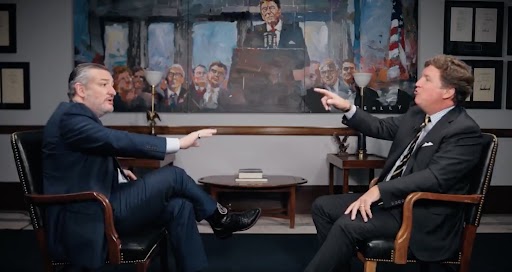Tucker Carlson and Ted Cruz’s Heated Debate on Iran: Key Takeaways
Recent discourse between conservative commentator Tucker Carlson and Texas Senator Ted Cruz has ignited attention, showcasing a fiery exchange over crucial knowledge about Iran. This notable confrontation was part of an interview, where Carlson challenged Cruz on his understanding of the country, leading to a tense dialogue that highlights significant political and foreign policy issues.
The Tense Exchange
In a clip that rapidly gained traction on social media, Carlson pressed Cruz on basic demographic facts about Iran, a nation he seeks to challenge politically. The discussion escalated when Carlson asked, “How many people live in Iran?” to which Cruz admitted he did not know the population. Carlson’s astonishment was palpable:
- Carlson: “You don’t know the population in the country you seek to topple?”
- Cruz: “I don’t sit around memorizing population tables.”
Carlson responded emphatically, stating that knowledge of such details is pertinent when discussing the overthrowing of a government. This exchange highlighted the underlying complexities of U.S. foreign policy toward Iran.
Key Points of Discussion
Population Awareness
- When Carlson mentioned, “Ninety-two million,” he wanted to underline how basic demographics are crucial when discussing international interventions.
- Cruz countered by questioning the relevance of population numbers, igniting further debate.
Ethnic Composition Query
- Carlson probed Cruz on the ethnic makeup of Iran, which further flustered the senator.
- The tension escalated as Carlson interrupted, insisting that Cruz seemed uneducated about the nation he aimed to challenge politically.
Military Concerns
At a pivotal moment, Cruz declared, “We are carrying out a military strike today,” prompting Carlson to seek clarity. This statement raised critical questions regarding the U.S.’s involvement in potential military actions against Iran and the implications of such claims.
Broader Context: U.S. and Iran Relations
This interview placed a spotlight on U.S.-Iran relations, all while discussing:
- AIPAC initiatives influencing policy.
- The political tension surrounding military engagement in the Middle East.
Cruz’s mention of an “obsession with Israel” added another layer to the dialogue, as both men discussed the implications of U.S. support for Israel amidst rising tensions with Iran.
Accusations of Antisemitism
Amid the conversation, Carlson accused Cruz of insinuating antisemitic remarks, leading to a further breakdown in communication:
- Carlson: “You’re trying to derail my questions by calling me an antisemite.”
- Cruz: “I did not.”
This exchange underscores the highly charged nature of political discussions regarding Israel and its critics.
What’s Next?
The full interview promises to delve deeper into these contentious topics, addressing key issues surrounding U.S. foreign policy, military intervention, and the complexities of geopolitical strategies in the Middle East. Watch for the complete discussion on Carlson’s website.
For those keen on understanding the intricacies of U.S.-Iran relations, learning about the political dynamics at play is essential. The growing debate regarding military engagements and foreign interventions continues to be a critical issue in American politics.
Conclusion
The exchange between Carlson and Cruz reflects a critical moment in political dialogue surrounding foreign policy. As both figures grapple with complex issues surrounding Iran and U.S. intervention, viewers are encouraged to follow these discussions closely.
For more information on U.S.-Iran relations and the complexities of Middle Eastern geopolitics, refer to credible news sources and political commentary here and here.


